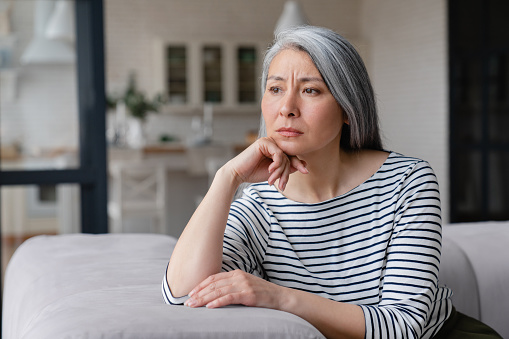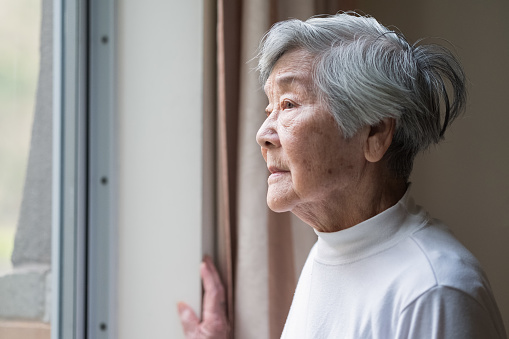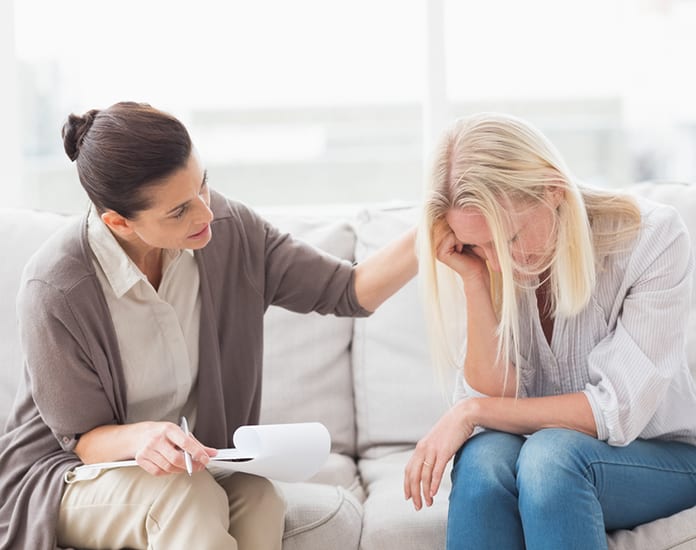
The Fear of poisoning is known as Toxiphobia or iophobia by some people. When you’re afraid of something, chances are you have a reason to be. The idea of getting hurt, or getting something bad to happen to you, is a natural one. We all have fears lurking in the back of our minds, ready to strike at the first opportunity. Let’s face it, we’re all going to be exposed to something dangerous at some point in our lives.
Some people are naturally more afraid of certain things than others. If you’re reading this article, there’s a chance that you have some level of anxiety when it comes to things like germs, being around chemicals, or anything that you consider to be poisonous.
To successfully handle your fear of poisoning, it’s helpful to understand what you’re up against. Coming to terms with your anxiety is the first step toward overcoming it. Let’s take a look at some practical tips that might help you.
Contents
What is Toxiphobia?
Toxiphobia is a specific phobia characterized by an individual’s fear of poisoning or of poisons. Toxiphobia is also known as iophobia. This phobia may have developed from the association between poisonous substances and harmful organisms and their potential to cause death or disease.
Toxiphobia is not only the fear/ worry but the abnormal/ irrational or disproportionate fear of poisons or of being poisoned. The fear is real even though the risk of poisoning is a minor problem in the United States.
Other than humans, animals with toxiphobia will reject foods with tastes, smells, or appearances that culminated from an illness from the toxins found in these foods.
What causes toxiphobia?
Fear is a natural part of our lives. When you’re afraid of something, chances are you have a reason to be. The idea of getting hurt, or getting something bad to happen to you, is a natural one. We all have fears lurking in the back of our minds, ready to strike at the first opportunity.
Toxiphobia can be traced back to childhood memories through negative emotional experiences that can either be directly or indirectly linked to the object or situational fear. Even though most cases are learned, some of the toxiphobia instances are inherited.
The negative emotional experiences that cause toxiphobia can either be directly or indirectly linked to the object or situational fear among a number of factors. Such people with toxiphobia are learned such as when one was poisoned and survived.
One major fear that many people experience is toxiphobia, which is when an individual has an intense and persistent fear of being poisoned by chemicals in their environment.

Symptoms of fear of poisoning
The following are the common symptoms of Toxiphobia. It is important to note that the symptoms are also experienced in some anxiety disorders. Therefore, to use them for diagnosis, you need qualified medical personnel to use the symptoms and history for the diagnosis to be made. The symptoms are:
- High levels of suspicion
- Increased sensitivity to smell or taste
- Insisting on preparing own food and drinks
- Getting panic attacks, especially when about to eat
- Inability to Relax and restlessness
- Excessively Breathlessness
- Having problems concentrating
- Being quick-tempered
- Feelings of dizziness
- Getting prickly sensations like pins and Being Poisoned Palpitations
- Aches & Pains
- Tiredness (Fatigue)
- Dry and Sticky mouth
- Sweating
- Migraines and Headaches
You may have a few or several of the symptoms above. The frequency and severity also depend on the individual and the length of time you have had an untreated toxiphobia.
Cognitive Behavioral Therapy for toxiphobia
Talk therapy can help with anxiety One of the most helpful methods for conquering toxiphobia is Cognitive Behavioral Therapy (CBT). CBT is a form of psychotherapy that helps people understand how their thoughts affect their feelings and behavior.
It starts with identifying your negative thoughts and then finding evidence to refute them. When you can’t find any evidence to prove that what you’re afraid of happening will happen, it becomes easier to confront your fears.
Cognitive-behavioral therapy has been proven to help reduce people’s fear of poison, so it could be worth considering if this is the root of your anxiety. There are also some other useful strategies that can assist in overcoming the fear of poisoning:
Other therapy methods for Toxiphobia
Psychotherapy CLB is a psychotherapeutic technique that uses the power of neuroplasticity to change limiting beliefs. It’s been found to be successful in a number of people with phobias, including Toxiphobia.
BWRT (Brain Working Recursive Therapy) is a variation on CBT, or Cognitive Behavioural Therapy, and is said to have some success in treating Toxiphobia. BWRT works through the repetition of positive statements during different phases of sleep.
General counseling has been shown to be effective for people with Toxiphobia. This approach can help you explore your anxiety and identify ways to cope with it.
Hypnotherapy has also shown potential in helping people overcome their Toxiphobic thoughts. Hypnotherapy works by teaching you how to relax and control your thoughts while also identifying patterns that may exist within your fear-based thoughts.
Practical Tips to Successfully Cope with Anxious Thoughts
Step 1: Empathize with Your Fear
When you’re fighting a fear, it can be difficult to put things into perspective. As we know, fear is an inherent emotion and one that is often hard to control. When you’re afraid of something, it can be difficult to rationalize your thoughts.
Fear is often irrational and it makes sense that your thoughts might also be irrational. Regardless of the situation, you need to make sure that you can empathize with your feelings in order to effectively deal with them.
So many people have had a similar experience in which they have been poisoned or have come into contact with something poisonous in their lives (either as a child or adults). Understand that this doesn’t mean that these fears are unfounded.
They’re just different from what other people might feel. The fear of being poisoned is a valid fear for many people, even though it rarely happens for most people.
Step 2: Learn the Basics of Poisoning
If you’re afraid of something, it’s important to know what that fear is all about. In order to overcome your fear of being poisoned, it’s a good idea to learn more about poisoning.
For example, most people believe that they can tell when they have been poisoned or if they have been poisoned. That may not be the case. It may be difficult to determine if you’ve been poisoned because the symptoms may not appear for hours or days after the ingestion.
Furthermore, many people make the mistake of thinking that any time they feel sick or have health problems, it must be caused by being poisoned. That’s never a safe assumption!
Step 3: Understand How Anxiety Works
The first step to overcoming your fear of poisoning is understanding what anxiety is. Anxiety is a natural response that the body has when it perceives a threat. When you’re anxious, your brain activates the fight or flight response.
The autonomic nervous system releases stress hormones, like adrenaline and cortisol, to warn your body that there’s something dangerous around and prepare it to react accordingly. Anxiety is completely normal and happens in everyone at some point in their life, but you should still be aware of what’s happening to you and how it affects you emotionally as well as physically.
Some people experience anxiety for weeks or months before they realize that their symptoms are rooted in their thoughts about an event. For example, an individual may be anxious about food poisoning from eating at a restaurant because they read an article about another person who got sick from eating there last week.
hey may not have experienced any symptoms whatsoever from eating there but the thought of being poisoned lingers in the back of their mind no matter what they do since it happened to someone else.
When this occurs, the individual may start “fooling” themselves into believing that they are experiencing symptoms like nausea or stomach aches just so they feel validated by their own thoughts rather than continuing to question their fears.
At this point, it becomes difficult for them to discern whether or not they have food poisoning or if the anxiety is causing these symptoms all on its own.
Step 4: Try to Counteract Your Fear with Logic
Try to think logically. One of the most common ways that people beat their fear is by finding a way to counteract it with logic. If you’re afraid of being poisoned, try to find evidence that shows how unlikely it is for something bad to happen.
For example, if you go grocery shopping every day, you’ll be exposed to more things than someone who only shops once a week. This might make you feel better about your chances of being exposed to poison because you’re not just holding on to one single experience.
Step 5: Exercise and Journal
Exercise is instrumental in defeating many types of anxiety. When you exercise, your body releases endorphins that help to regulate both mood and stress levels. It can also be a great way to clear your head of any negative thoughts.
And, it’s a great excuse to get outside, among other benefits. Journaling is a great way to take a step back from the present moment and calm your mind.
Writing down your thoughts provides an opportunity for you to reflect on them without the pressure and negativity that often accompanies the thought. It’s a therapeutic pastime that can lessen feelings of anxiety over time.
Step 6: Cultivate Healthy Social Habits

One of the best ways to cope with anxious thoughts is to get involved in healthy social habits. Social activities are simple, and most people enjoy them. It’s easy to isolate yourself when you have anxiety, but this can make it worse.
The more we interact with other people and have healthy social habits, the better our quality of life will be. A lot of anxiety is caused by isolation, so it’s important to break out of your comfort zone at times and to meet new people that don’t worry about the same things you do.
Step 7: Stay Active and Find Your Happy Place
One of the best ways to overcome anxious thoughts is to stay active. Physical activity lets your body release natural feel-good chemicals that help you relax and relieve stress. If you’re feeling restless, try going for a walk or a run.
Even something as simple as sitting on the floor with your legs outstretched and wiggling your toes can help take your mind off of things for a little bit. It can also be helpful to find something in life that makes you happy, so it’s easier to get through tough times.
For example, one of our contributors used photography to get through his fear of being poisoned. He started by taking pictures every day and found that he enjoyed it more than he expected – an idea that eventually led him to pursue photography as his career path.
If you have a hobby like this, start using it! The more time you spend doing things that make you happy, the less likely anxiety will come up.
Step 8: Stay Calm and Breathe
A natural way to deal with anxiety is to take deep breaths. Anxiety causes your lungs to tense and forgets how to function correctly. In order for you to calm your mind, you need to help your body relax.
When you’re in a panic attack, the adrenaline in your body feels like it’s on the verge of going haywire. You can help all of that energy dissipate by breathing slowly, deeply, and evenly. Just by doing this one thing, you can start feeling calmer.
The breathing exercises enable you to control your feelings. You will feel more relaxed and in control if you can practise breathing and have a relaxation routine.
Step 9: Refocus and Reassess
It’s important to reassess your situation as time goes on. You might have some anxiety now, but if you work through it and face the fear head-on, it could go away in the future.
You might not have any problems at all! So make sure that you take a step back and look at things objectively so that you can make an educated decision about what you need to do next.
Step 10: Understand Why You’re So afraid of Poisoning
If you’re like most people, your fear of being poisoned stems from a traumatic experience. It could be because you had bad experiences with poisons in the past, or it could be because you were witness to someone else being poisoned.
Regardless of what caused the fear, it’s worth examining the root cause to find out why this fear is so strong in you. You might not know that it’s common for people to develop an intense fear of something after they have been exposed to it on multiple occasions.
For example, if you’ve been exposed to something dangerous multiple times and never received any relief from the pain associated with it, then there’s a good chance that your fear is rooted in a traumatic experience.
Step 11: Tell Someone You Trust

It is important to tell someone you trust about your fear of being poisoned. When we share our fears with other people, it reduces their power over us. It also helps us feel less alone. One of the best ways you can cope with your anxiety is to talk with someone who cares about you.
Telling someone else how you’re feeling can help you feel better because they may have good suggestions on how to manage your anxiety and provide a sense of support.
Talking with a friend or family member will remind you that there are people who care about you and want to help in any way they can.
Fear of being poisoned by food
The fear of being poisoned by food in most cases starts after a severe bout of food poisoning, a bad stomach bug, or a case of food-borne illness The first thing we need to do is forget about the horror stories.
It is true that people have been poisoned in various crimes over the past, but it’s relatively rare. Most often, when you’re poisoned by something in the food, it will be by accident. When someone gets poisoned by their own food, it’s usually because they ate something that was expired or poorly handled.
In these cases, the poisoning was accidental and not intentional. If you think back to some of the most tragic stories of being poisoned before this point, they were all crimes against people who had no control over what was going on with their food.
When you’re cooking at home, this isn’t going to happen to you; you control what goes into your food and how it is stored and handled. Don’t Panic: You’re not going to get poisoned just because someone improperly handles your food.
This doesn’t mean there isn’t anything you can do though! You can take steps to avoid accidentally poisoning yourself while preparing any dish- which we’ll cover in just a moment!
Fear of being poisoned OCD
One of the most common fears that people have is the fear of being poisoned. The fear of being poisoned OCD, also known as toxiphobia, is when someone suffers from obsessive thoughts about becoming contaminated, contaminating others, or contracting and spreading disease (contamination OCD).
This fear can be more severe than other types of phobias since there are higher risks for poisoning. If you have this particular phobia, it makes sense that you would need help in order to cope with your anxious thoughts. Here are some practical tips to help you overcome your fear:
What does contamination OCD feel like?
that is triggered by exposure to a particular object, place, or situation If you have an anxiety disorder, chances are you’ve experienced it before. It doesn’t matter what type of anxiety disorder you have- there’s a chance that you’ve had the terrifying thoughts that something bad will happen to you.
In the case of contamination OCD (TOC), the fear stems from contact with something that is considered to be contaminated. It can be difficult for those with TOC to go about their daily life when they constantly worry about coming into contact with something “contaminated.”
Exposure to this anxiety triggers serious anxiety and distress in those who suffer from it.
Does OCD cause phobias?
OCD can evolve into a phobia or vice-versa. In fact, 7% of people with OCD also have one or more phobias. Obsessive-Compulsive Disorder (OCD) does not cause phobias but can evolve into one.
It’s important to note that many people with OCD do also have phobias, but the reverse is true. However, you can have a phobia and not OCD, or you can have OCD without having any phobias.
However, it is possible for someone to develop one after the other, or in conjunction with one another. Phobia typically develops before OCD in childhood when traumatic events can occur due to fears of spiders or heights which leads to anxiety and avoidance behaviors.
In adults, there are many ways that toxiphobia may develop when they were exposed to something at an early age such as a natural disaster or car accident. It makes sense then that some people might actually be diagnosed with both disorders together because it’s so easy for them to develop simultaneously and be symptomatically co-morbid for one another.
Conclusion
This fear is one of the most common fears in people, and it can be crippling to think about. But in reality, it’s less likely than ever before that you’ll actually get poisoned. Take a look at some of these tips to help you overcome your fear of being poisoned.
Anxious thoughts are inevitable. They are a normal response to stress, and they often arise from a sense of uneasiness or fear about a specific situation or situation in general.
What makes these thoughts so troublesome is that, with constant vigilance and vigilance, they can become a self-fulfilling prophecy. The fear of poisoning is one of the most common phobias. Many people fear being exposed to toxins, chemicals, and other substances that can harm or even kill them.
Unfortunately, this fear becomes a self-fulfilling prophecy and can cause unnecessary suffering, especially when coupled with other phobias. If you’re one of those who suffer from anxiety and fear of poisoning, this article is for you.
FAQs
What are the common causes of fear of poisoning?
Fear of poisoning is thought to come from a variety of sources. One possible cause is that people who are afraid of being poisoned often have a history of violence or abuse in their childhood. This can lead to trauma and flashbacks when they think about poisonous substances. It’s also been noted that people who are afraid of being poisoned may also have obsessive-compulsive disorder (OCD).
How does Toxiphobia affect someone’s life?
People who suffer from toxiphobia will typically avoid situations where they could be exposed to poisonous substances, like household cleaners or pesticides. As these situations increase, so does the level of anxiety and the avoidance behavior that follows.
What are some natural ways to overcome Toxiphobia?
Some natural ways for overcoming Toxiphobia include: 1) Avoidance 2) Exposure therapy 3) Medication 4) Cognitive Behavioral Therapy (CBT) 5) Self-hypnosis 6) Relaxation techniques
Image source: https://unsplash.com/